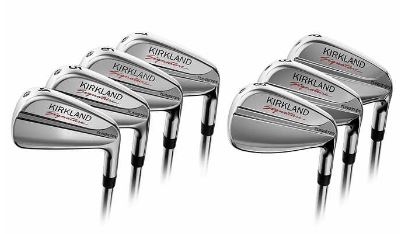
The golf club company TaylorMade filed a lawsuit against Costco alleging Costco’s Kirkland Signature irons infringe on TaylorMade patents, particularly those related to the P790 irons.
As of May 2024, the Kirkland Signature set retails for $499.99, if you can find it in stock. TaylorMade’s P790 irons currently retail for $1,399.99.
We reviewed the complaint and there is plenty of information to unpack that is of interest to golfers and Costco shoppers.
The lawsuit describes how the club retailer sourced the design of its private-label Kirkland-branded clubs. The Costco-obsessed will love to hear the behind-the-scenes origin story of a highly sought-after Kirkland product. The origin of quality Costco products like Kirkland vodka, batteries, and wine is the subject of much internet lore.
For golfers, there is immense intrigue about what products contain technology that can improve your game. Which designs are simply gimmicks or marketing ploys, designed to make last season’s clubs seem obsolete? The P790 irons are said to contain the most advanced technology. But is that technology worth the price of the P790 irons?
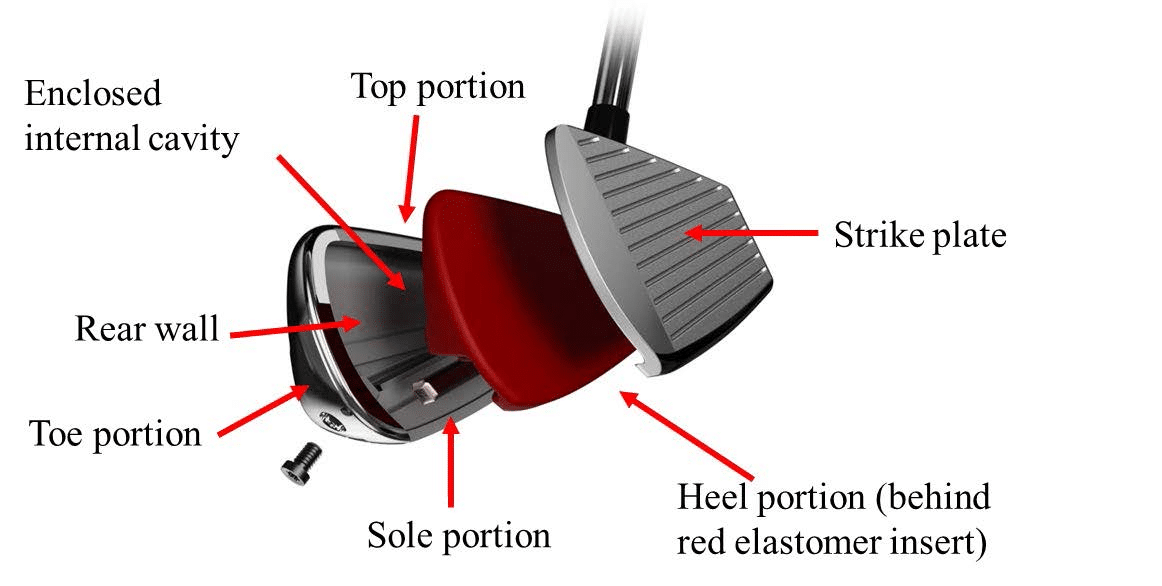
The case might set a precedent for how affordable golf equipment competes against established brands.
TaylorMade: A Giant in the Golf Industry
TaylorMade, an undeniable giant in the golf industry, emerged from humble beginnings in 1979. Its founder, Gary Adams, a golf equipment salesman, took a risk by mortgaging his home and starting the company in a small building in McHenry, Illinois. Their initial breakthrough was a truly revolutionary product: a 12-degree driver made of stainless steel. This metal wood, nicknamed the “Pittsburgh Persimmon,” forever changed the game, replacing the traditional persimmon wood drivers. The steel construction brought unprecedented forgiveness and power.
This focus on innovation has been the cornerstone of TaylorMade’s success. They were among the first to introduce technologies like moveable weights for driver customization, furthering the personalization of golf equipment. The iconic Burner Bubble driver series of the 1990s further cemented its status with its distinctive oversized heads.
TaylorMade consistently pushes technology boundaries, introducing game-changing concepts like hollow body irons with tungsten weighting or their SpeedFoam technology, designed to enhance both distance and feel. Their relentless pursuit of improvement has attracted some of the greatest golfers of all time, including Tiger Woods, Rory McIlroy, Scottie Scheffler, and more.
Today, TaylorMade stands not only as one of the leaders in golfing equipment technology but also as a force in shaping the way the game is played, both by the world’s elite players and passionate amateurs alike. The P790 irons are advertised as cutting-edge, the best of the best.
Professional golfers that endorse TaylorMade include some of the best: Tiger Woods, Rory Mcllroy, Scottie Scheffler, and Collin Morikawa.
The Kirkland Signature Phenomenon
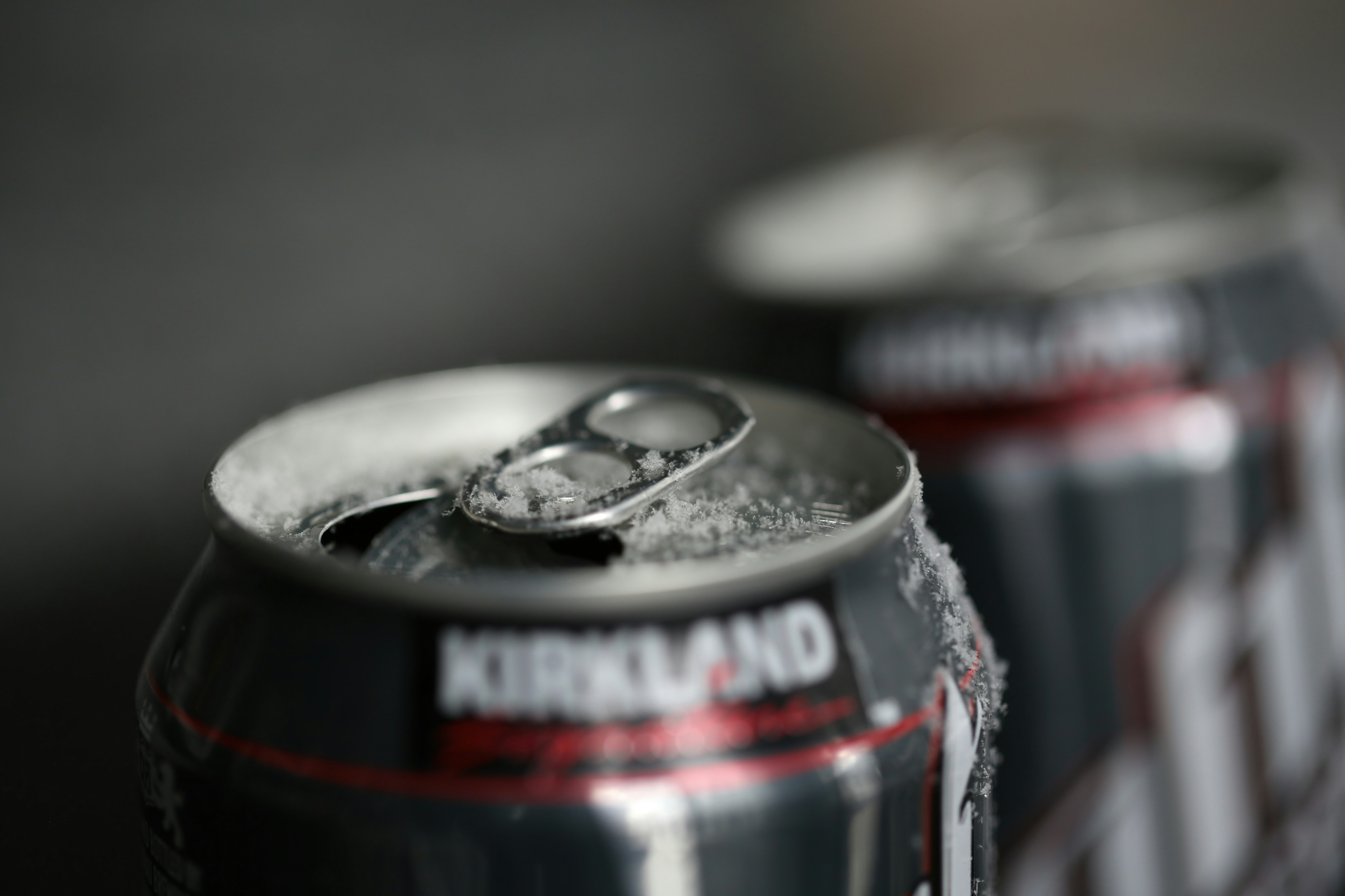
Costco’s private label brand, Kirkland Signature, has become a phenomenon, achieving cult-like popularity among consumers. The key to Kirkland’s success lies in the blend of high quality and affordable pricing. Shoppers realize they can get items comparable to (and often exceeding) the quality of well-known national brands but at a significant discount.
Kirkland’s offerings extend far beyond golf. Their household items like batteries and toilet paper, along with gourmet favorites like bacon, coffee, and liquor, enjoy dedicated followings for their value. This dedication to quality control means that the Kirkland name itself has become a symbol of trust for savvy consumers.
What further boosts Kirkland’s popularity is the element of surprise. Items sometimes change seasonally, and shoppers eagerly anticipate new Kirkland Signature products, knowing the brand’s reputation for delivering impressive (and delicious) finds at a bargain.
Legendary Kirkland Golf Balls
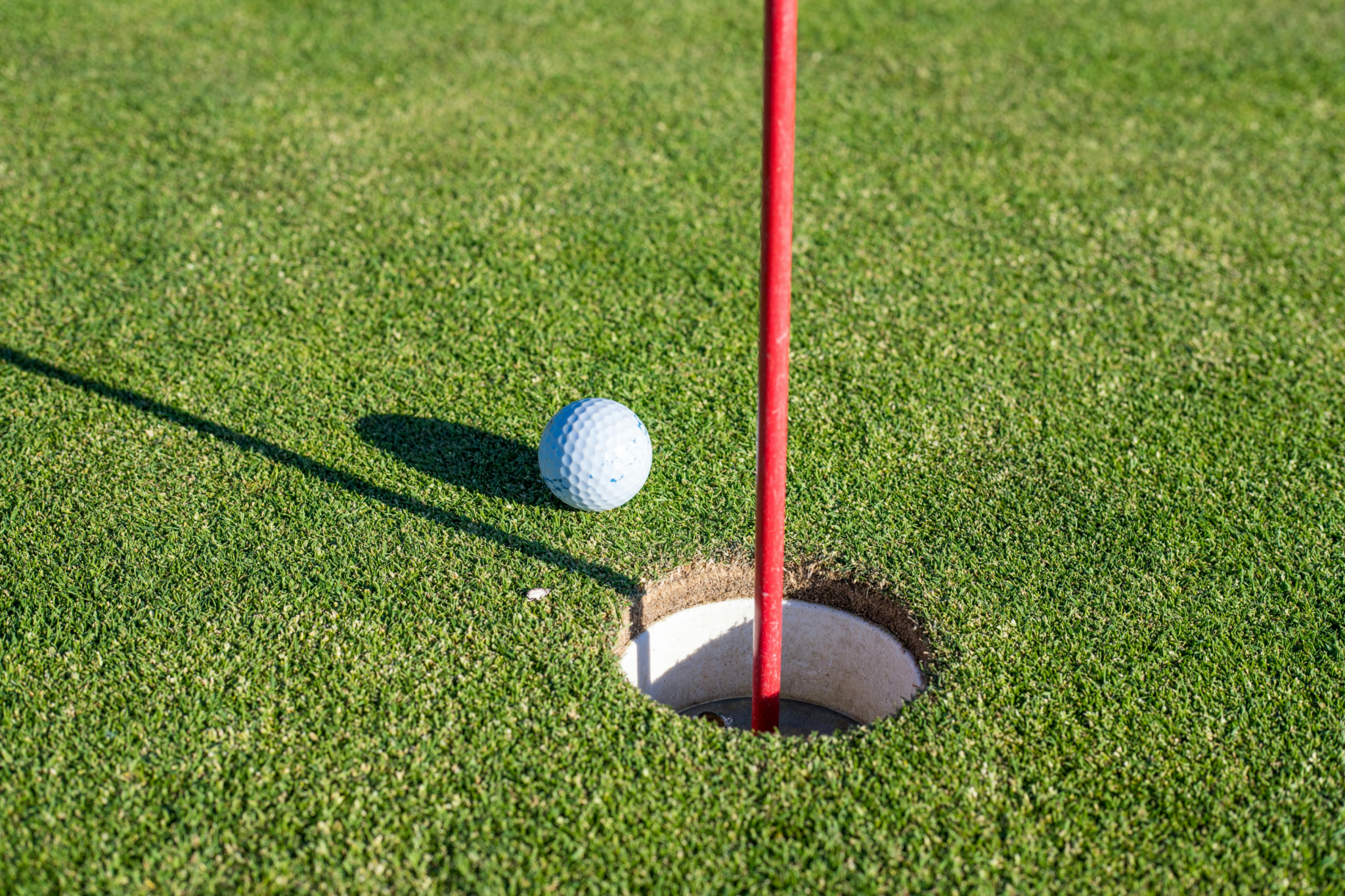
The Kirkland Signature golf ball, introduced in 2016, has become a legend in the golfing world, earning a fiercely loyal fanbase. It all began with the Performance Plus (three-piece) ball, which shocked golfers by offering performance rivaling premium balls like the Titleist Pro V1, but at a fraction of the cost. The secret? Costco partners with experienced ball manufacturers, likely the same ones used by major brands, and focuses on quality components like a urethane cover for an exceptional feel.
Word of mouth spread like wildfire, with golfers discovering they could get premium performance without the price tag. The Kirkland ball became a symbol of democratizing the game.
I first read about the balls in the Wall Street Journal.
Well-Made Kirkland Signature Irons
Costco entered the club market in 2020, releasing a set of wedges and a putter. The KS1 putter caused a huge stir due to its resemblance to high-end Scotty Cameron putters and its budget-friendly price.
In December 2023, a full set of Kirkland Signature golf clubs debuted, advertised as featuring a urethane insert. The iron sets sold out in hours, generating significant buzz.
Kirkland golf clubs sell fast on eBay, often for significantly more than their retail price.
TaylorMade v Costco Allegations
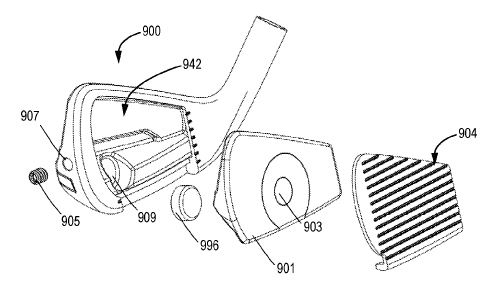
TaylorMade believes Costco has intentionally copied the patented features of the P790 irons, using them to create a more affordable, competitive iron set, in a deliberate violation of their intellectual property.
TaylorMade alleges that Costco’s Kirkland Signature irons directly infringe on several of their patents related to its patented advanced iron design. These patents largely center around technologies present in their popular P790 irons. Here’s a breakdown of the key areas of contention:
Hollow-Body Construction
TaylorMade claims Kirkland Signature irons mimic the P790’s patented features, including the hollow body design, which allows for strategic weight placement, increasing forgiveness and distance.
SpeedFoam Technology
TaylorMade argues Costco irons utilize a foam-like substance within their hollow bodies, similar to their patented SpeedFoam technology that is designed to enhance both feel and ball speed.
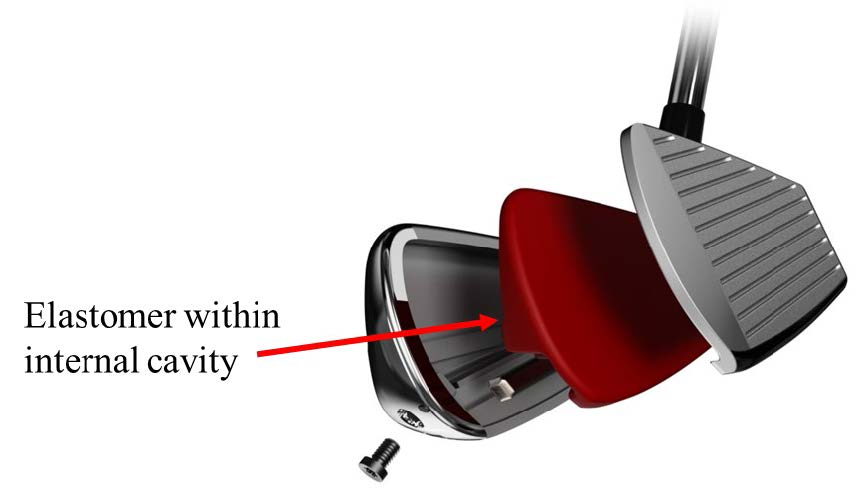
Tungsten Weighting
Both iron sets position dense tungsten weights strategically within the clubhead. TaylorMade contends Costco is infringing on patents covering the specific use of tungsten to optimize performance characteristics.
Face Insert Construction
TaylorMade believes Costco is employing a similar method of face construction with a separate, thin face insert welded to the body. This contributes to greater ball speed and feel, an element of the asserted patents.
False Advertising
TaylorMade also accuses Costco of false advertising to deceive consumers. They dispute that Costco irons contain the same type of urethane insert used in TaylorMade’s P790 irons. TaylorMade argues that the urethane insert is a critical element covered by their patents. TaylorMade alleges that Costco’s insert is made of a different material. The allegation is that Costco also misled golf journalists, whose stories have added to the legend of Kirkland signature irons, which influences purchasing decisions.
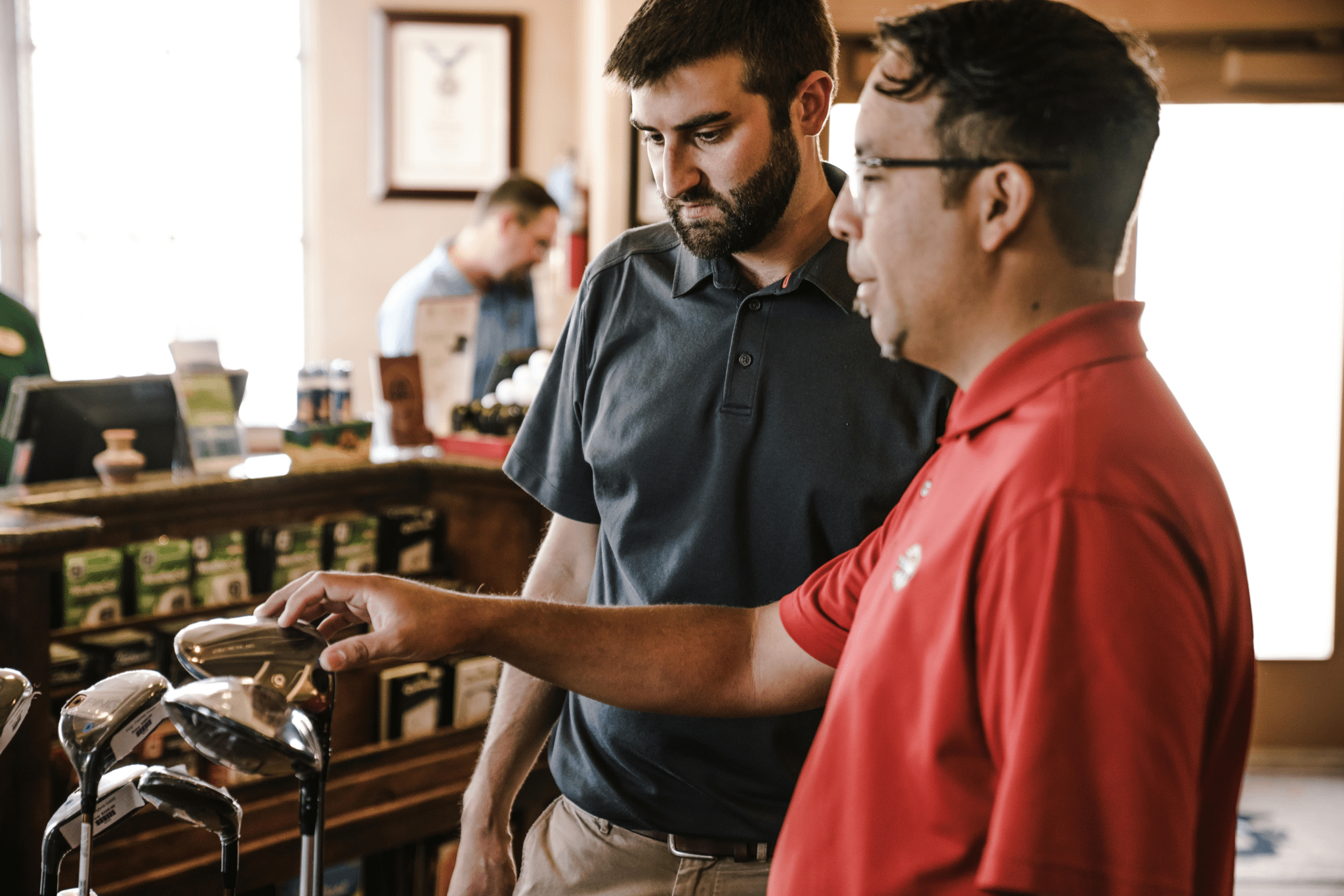
What is the Southern California Design Company?
What design team made the Kirkland clubs? TaylorMade asserts in the complaint that Southern California Design Company (“SCDC”), which goes by the name Indi Golf designed and manufactured the Kirkland signature irons for Costco. Taylormade sleuthed this information from the United States Golf Association approved club list, which identifies the manufacturer of approved clubs and balls. TaylorMade also asserts that SCDC employs a former TaylorMade engineer who worked alongside TaylorMade engineers during the development of the P790 irons.
Costco’s Potential Defenses
Costco has a few potential defenses against TaylorMade’s patent infringement allegations in the Kirkland Signature irons case. Here’s a breakdown of each:
Non-Infringement of P790 Irons
At the core, Costco could argue its irons do not infringe on TaylorMade’s patents for the P790 irons. This defense focuses on the specific wording and technical details of the patents. They might claim their use of hollow bodies, internal tungsten weight, or foam inserts differ enough functionally or structurally to avoid infringement on TaylorMade’s P790 irons.
Prior Art
This defense involves demonstrating that the technologies TaylorMade claims are unique and already existed in the industry before their patents were filed. Costco might present evidence of older irons with similar features, undermining TaylorMade’s claims of innovation. If the core concepts weren’t truly novel, it weakens the validity of the patents themselves.
Claimed Elements are Necessary
Costco could argue that certain patented design elements for the P790 irons are required for the United States Golf Association Equipment rule compliance. Such elements may be standard in modern club design and should not be patentable.
Patent Prosecution Estoppel
Some of the patents that are being asserted have other associated patent applications and patents that originate from the same parent application. Even though these related applications and patents are not being used in this lawsuit, the arguments presented for their patentability can be used to narrow the scope of the patents that are being litigated. This estoppel principle pertains to both foreign and domestic patent examinations.
Doctrine of Equivalents Limitations
Costco can argue that the differences in their irons are significant enough to avoid infringement. For example, they could argue that they use a different type of foam material that causes the golf clubs to function differently, resulting in a performance that falls outside the doctrine’s scope.
Contract Defenses
Costco may have certain contractual protections from their supplier, which might include an agreement that the Southern California Design Company (Indi Golf) will indemnify Costco from any claims related to false advertising or patent infringement. It is not uncommon for a contract like the one between Costco and Indi Golf to contain an indemnification and defense clause.
Notes from a Patent Attorney, Joel Fogelson
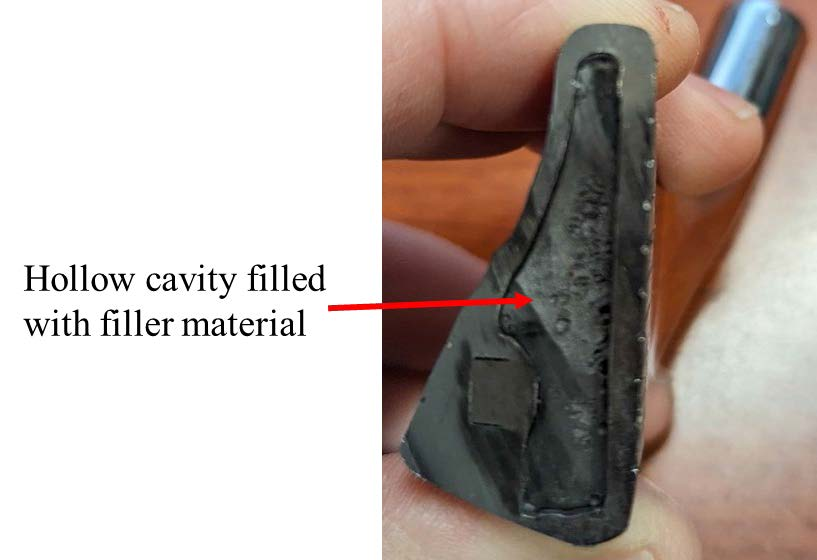
What is the Doctrine of Equivalence?
Patents describe inventions in detail. This lawsuit hinges on whether specific elements of Costco’s clubs are “equivalent” to those claimed in TaylorMade’s patents, even if not identical. This legal concept allows broader protection for patents.
A patent consists of a set of lengthy claims. These claims outline a series of steps for a method or a set of elements for a device, which are innovative and not obvious when compared to other inventions and prior art. The determination of what is patentable, how an invention may be novel, and how the invention is non-obvious is done by a patent office during the examination of a patent application. If the claims of the application meet these requirements, a patent should be granted.
When someone asserts a patent, they use a granted claim to make an infringement claim. Infringement is commonly known as “literal infringement,” where all the steps or elements of a claim must be present in an infringing method or device. For instance, if a claim says that something does A and B, an infringing device must also do A and B to be considered infringing.
The doctrine of equivalence is a legal principle that was established in the Graver Tank & Mfg. Co. v. Linde Air Prods. case by the Supreme Court. It allows for a broader interpretation of patent claims than what is provided by literal infringement. The Court created a “function-way-result” test, which means that an infringing method or device can be considered equivalent to the patented claim if it substantially performs the same function, in substantially the same way, to achieve the same result. This test is applied to each element and step of a claim, so there needs to be a literal or equivalence present for the method or device to be infringing. (Warner-Jenkinson v. Hilton Davis Chemical Co. is another Supreme Court case that further explains this concept.)
It is essential to understand that two inventions are considered equivalent only if their differences are insignificant, and the claimed equivalence was not waived during the patent examination. For example, if a patent is granted for using a nail to hang a picture, using a screw for the same purpose may not be considered literal infringement. However, it might still be regarded as infringing under the doctrine of equivalence. If, during the patent prosecution, the patent applicant’s representative states that a nail is not the same as a screw (to overcome prior art), this disclaimer could limit the scope of equivalence.
TaylorMade’s Application of the Doctrine of Equivalence
Upon reviewing the claims of the different asserted patents, it is noteworthy that the lawsuit contains Doctrine of Equivalence in its infringement claims. This approach can be useful for broadening the scope of patent claims beyond what is explicitly claimed, particularly when the infringing devices possess elements that have a similar “function-way-result.”
Consider Claim 1 of Patent 10,953,293 for the purposes of a hypothetical example. It requires “a tungsten weight located within the recess of the first part of the sole portion.” If a club head is accused of infringement but uses a weight made of a different material, such as iron, instead of tungsten, then it won’t be considered a literal infringement. However, the plaintiff could still claim infringement by using the doctrine of equivalence. By expanding the scope of the claim, the doctrine of equivalence may lead to a finding of infringement if another metal material is used that functions the same way as tungsten and achieves the same result.
The Doctrine of Equivalence is a useful tool that allows patent owners to protect their patents against infringers who try to avoid literal infringement by making minor changes. However, enforcing these protections can be challenging if the patent has multiple related patents (all stemming from the same parent application) or if there are inconsistencies in how a claimed element is defined during the prosecution of related cases. In such scenarios, the accused infringer may use the patent application’s prosecution history (file wrapper) and that of the related cases to argue that the doctrine of equivalence may not be applicable to the patent owner’s case. Since it appears that many of the asserted patents have related cases, this may be a hurdle for them to overcome.
